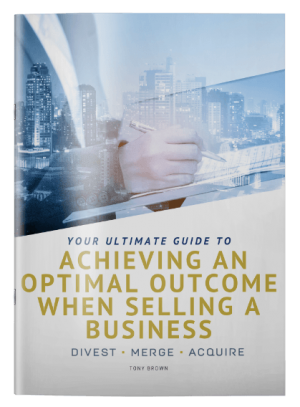The stakeholders in a business sale/purchase transaction have differing needs and concerns. You need to understand these so you can make correct decisions. With transactions involving individuals who may have never before purchased or sold a business, a fireside chat is often useful to explain how the process works. Here are some observations that are covered in the fireside chat.
Your Needs
Normally, buyers and sellers have an overriding need to achieve an outcome, and would prefer that this be done as safely as possible. Typically, you employ your lawyer and accountant to advise you on how to make the transaction as safe as possible, to optimise the structure of the transaction for tax and other factors, and to help bring about the deal.
The agent may be expected to find the buyer/seller and to facilitate the transaction including identifying and qualifying purchasers, coordinate discussions, manage negotiations and achieve a result. This aligns their goals with those of their client, who also has an overriding wish to achieve the outcome, providing the degree of commercial risk is acceptable. The seller and buyer usually have more to gain from the sale than all their advisors, so inevitable compromises are made to reach a workable (win-win) outcome.
Basis of Appointment of your Advisors
How your advisors are paid encourages them to act in an appropriate and predictable way; Lawyers and accountants normally charge for the time they spend on a project, not according to the outcome. This is logical as you want their assistance in making the transaction as safe and well structured as possible.
Brokers/agents are usually appointed and incentivised by either buyer or seller to achieve a specific outcome and are paid according to the result. It is natural to expect they will be keen to succeed. The key is to ensure you are working with an agent/advisor who looks for win-win and whose business relies heavily on referrals from clients, buyers and their advisors, and who takes a long-term view of all relationships. Divest Merge Acquire does, as our ‘Testimonials’ confirm.
Lawyers, for both buyer and seller, must protect you, themselves and their business. This is best done by pointing out all the possible pitfalls in the transaction and, where appropriate, advise against proceeding if this is likely to be compromised. This is logical and reasonable in today’s litigious world, where lawyers in particular, have become both the perpetrators of, and also the victims of, this higher risk world.
They want to protect you, the client, so you are less likely to turn on them if something goes wrong later. Note – they do not have an overriding need to see a transaction take place, as this theoretically increases their risk. Most lawyers would prefer to act for the seller rather than the buyer, as there is inherently less risk to a seller in a business transaction.
Accountants are in a similar position to lawyers regarding risk, although they are generally closer to their clients because of more regular consultation on ongoing accounting and related business activities. They may have known their client for many years and assisted with how the business has developed. They will naturally want to see the best possible outcome for their client.
This can manifest itself in an optimistic valuation for a selling client, and a conservative valuation for a buyer. While both positions can be justified, they may result in unrealistic expectations for their clients.
Make it clear to your advisors what you expect of them
There is no such thing as a perfect contract. Usually making it perfect for one party will ruin it for the other. Communication, motivation and common sense are required for an outcome to be possible. The best accountants and lawyers do much more than point out problems, which is a relatively easy thing to do. The most valuable advisors point out the problems and then offer solutions!
We have heard stories about lawyers prolonging disputes to increase their fees; and accountants obstructing transactions to retain their clients. We rarely see any evidence of these selfish motives at all. The vast majority of professional advisors act in good faith and with appropriate competence.
Focus on the outcome
Always keep your focus on the long term goal. All stakeholders to the transaction, for both buyer and seller, share a strong desire to be able to look back and see a good overall result for everyone- buyer, seller, employees, financiers, lawyers, accountants, agents etc.
Staying focussed on the outcome will help keep your perspective when negotiating individual aspects of the transaction and counter the tendency to be drawn into point-scoring during the negotiation, which makes you lose sight of the big picture.
Some further tips for navigating transaction issues:
Practically speaking, there is no such thing as a risk-free transaction. People buying a business are knowingly entering into the world of commercial risk. Those selling already live every day with business risk. The sale transaction is no different to all other transactions the parties deal with.
If you ask your lawyer “should I do X?” their default response will be “NO”. Your lawyer has nowhere to go here but ‘No’ unless this is a risk free outcome. If you ask them “If I do X, then what might the consequences be? This gives your lawyer the opportunity to provide
some useful commercial advice.
You could also ask what they would do if they were in your shoes. Lawyers are commercially astute, so give them the opportunity to help you without the risk of you turning on them if it doesn’t work out. In many situations, lawyers may write to their client advising them not to proceed with a particular situation. They would do this to protect you and themselves, but may fully expect you will proceed anyway.
The interesting thing is that, both the buyer and seller are obtaining advice according to these same guidelines. It is therefore likely that, with each lawyer striving to make the transaction ‘risk-free’ to themselves and their respective clients, the default outcome is for no transaction to occur!
In the end, your accountant and lawyer know that you will make a commercial decision. They expect you to and would be surprised if you pulled back from an attractive deal, even if it contains commercial risk. Generally, the more experienced at business you are, the better you can discern and rationalise the advice you receive. Seasoned business people who know the ropes often relegate advisors to less prominent roles according to their specialised expertise. Inexperienced buyers and sellers will tend to rely entirely on their advisors. In some cases, the accountant and lawyer find themselves being relied on for commercial advice where they may not be qualified. This may increase their risk and therefore force them to be even more conservative.

